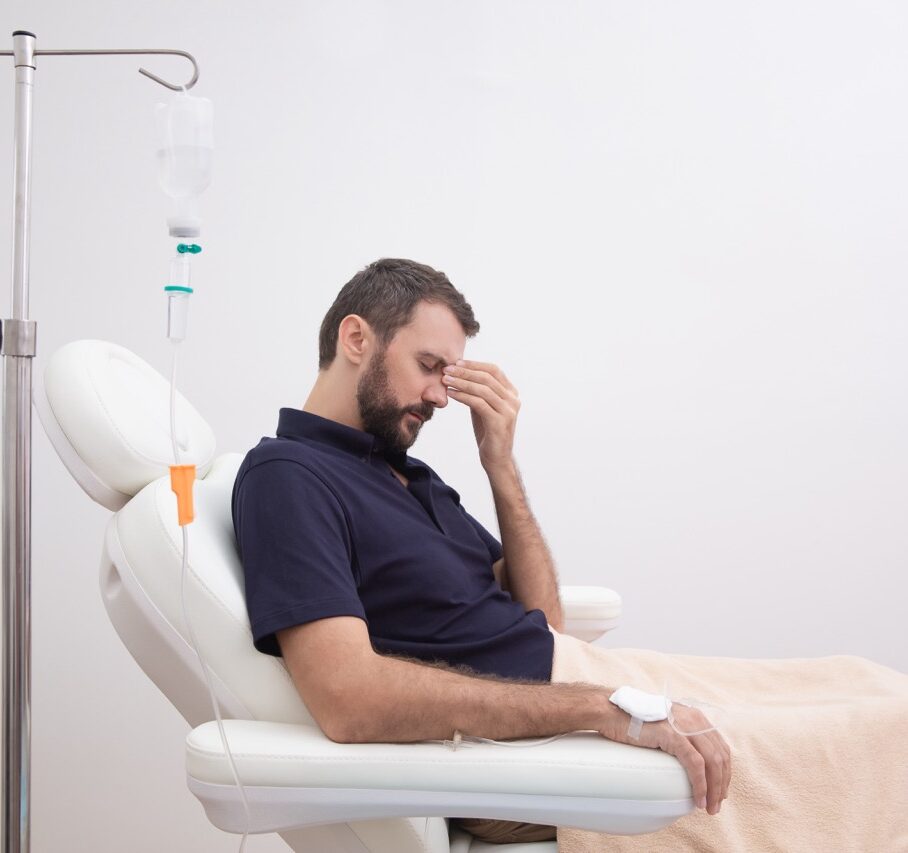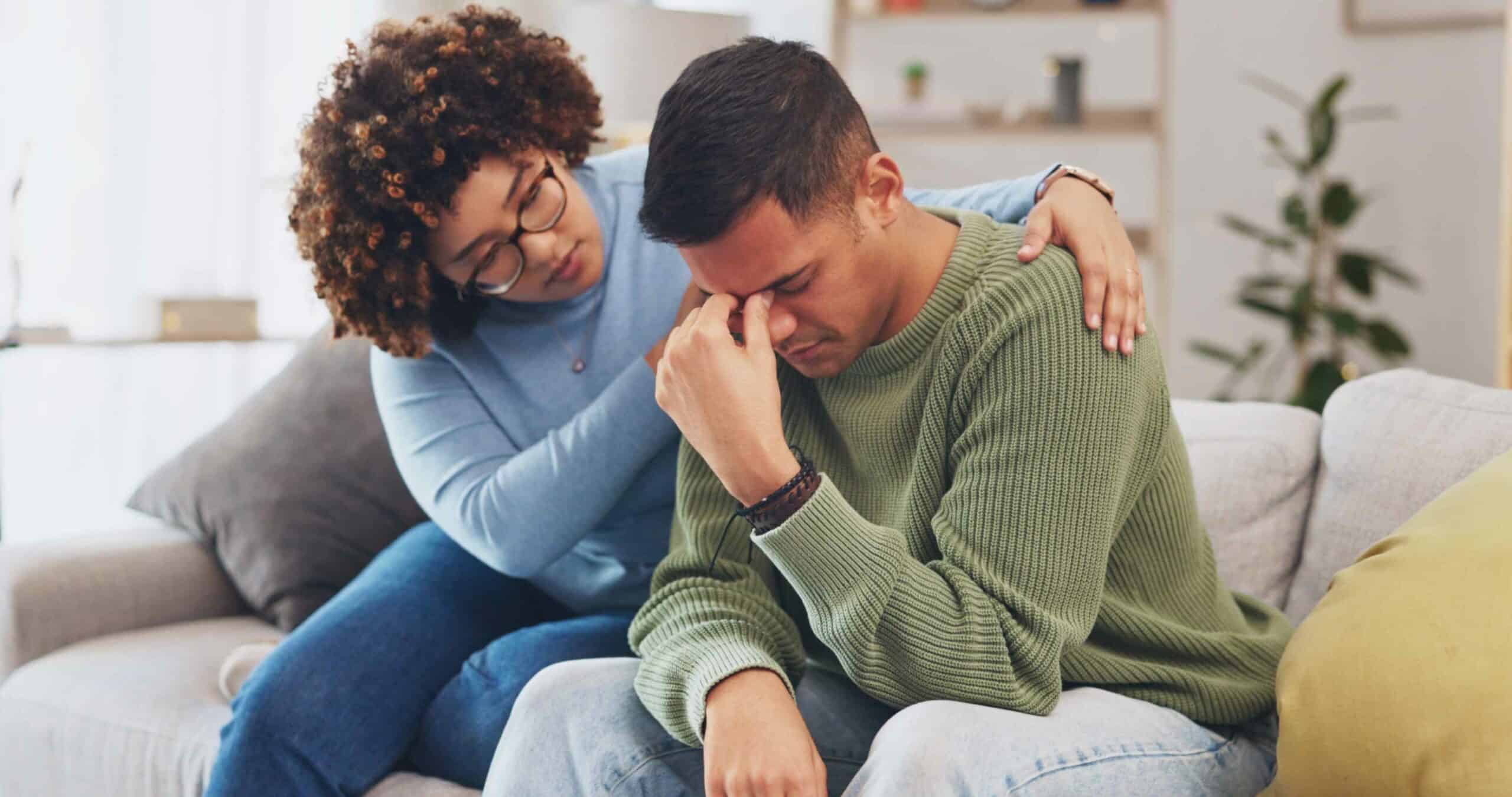Table of Contents
Brushing off persistent worry or sleepless nights during a stressful week is easy. But when these experiences repeat themselves, interfere with your daily life, or make you feel like you’re constantly in survival mode, it might be more than just “a rough patch.” You’re not alone if you’ve found yourself googling phrases like “why do I feel anxious all the time?” or wondering if there’s a deeper issue behind your exhaustion.
Many people silently struggle with depression & anxiety, unsure of what’s normal and what warrants professional help. For those who are wellness-conscious and looking for solutions beyond short-term fixes, it’s essential to understand the signs and explore lasting options for healing. Recognizing the signs is the first step to reclaiming your peace of mind, whether you’re navigating work pressures, family obligations, or unshakable internal doubt.
Let’s break down the top seven signs you may be struggling with anxiety—and what you can do to cope.
What Is Anxiety?
Anxiety is more than temporary stress. It’s a mental health condition that causes persistent, overwhelming fear, worry, or unease—even when there’s no immediate threat. It affects how you think, feel, and behave. And while it often overlaps with depression, it has its patterns and symptoms.
Unlike everyday nerves before a big event, chronic anxiety doesn’t go away once the situation passes. It lingers, sometimes without apparent cause, and can disrupt sleep, relationships, focus, and overall well-being. Many individuals with anxiety also experience physical symptoms, making it feel like a full-body experience, not just a mental one.
Understanding anxiety as a legitimate condition helps to remove the stigma and opens the door to real solutions. Knowing what it is allows you to recognize better when to seek support.
Top 7 Signs You’re Struggling with Anxiety
1. Constant Overthinking or “What-If” Spirals
Do your thoughts loop endlessly around scenarios that haven’t even happened? One of the most evident signs of chronic anxiety is repetitive, uncontrollable worry. Whether it’s fearing the worst or constantly second-guessing decisions, this kind of mental spinning is mentally draining and often leads to emotional exhaustion.
2. Restlessness and Physical Tension
If you feel like you can’t sit still or your body is always tight and on edge, this physical restlessness may be rooted in anxiety. Many people report a jittery feeling in their legs, clenched jaw, or shoulders held tightly, without realizing it’s connected to their mental state.
3. Sleep Problems
Anxious thoughts often intensify at night. You might struggle to fall asleep, wake frequently, or feel tired even after a night’s rest. Sleep disruptions are both a symptom and a trigger for worsening anxiety and depression symptoms.
4. Panic Attacks
These sudden episodes of intense fear can feel like a heart attack—racing pulse, chest tightness, shortness of breath, dizziness. While panic attacks are distinct from generalized anxiety, their appearance is a strong signal that your anxiety may need attention.
5. Avoidance of Social or Work Situations
Do you turn down invitations or miss deadlines because you’re overwhelmed or afraid you’ll “mess up”? Avoidance is a coping mechanism that feels helpful in the moment but often makes anxiety worse over time.
6. Intrusive or Catastrophic Thoughts
Unwanted thoughts about failure, embarrassment, or even danger can take over your mental space when not rooted in reality. If these thoughts interfere with your ability to function, they may point to a more severe form of anxiety or co-occurring signs of depression.
7. Physical Health Concerns Without Clear Cause
Headaches, stomach problems, muscle aches, and even skin breakouts can be stress-related. If your doctor has ruled out physical causes, these symptoms might be your body’s way of signaling chronic anxiety.
Benefits of Addressing Anxiety
Getting support for depression & anxiety doesn’t just help you “feel better.” It can improve nearly every aspect of your life—from your physical health to your relationships to your ability to make clear decisions. Here’s how:
- Better emotional resilience: Therapy equips you with tools to respond to stress instead of reacting to it.
- Improved sleep quality: Addressing anxiety often leads to more restorative sleep.
- More fulfilling relationships: Reduced irritability and better communication strengthen personal and professional bonds.
- Increased productivity and focus: When your mind is less scattered, your work becomes more manageable.
- Enhanced physical health: Lower stress reduces the risk of chronic illnesses and improves immune function.
Who Is Anxiety Therapy Best For?
If you’ve been silently enduring the effects of anxiety, it’s time to know that help isn’t only for those in crisis. Therapy for depression & anxiety in Waldorf, MD, can support a wide range of people, including:
- Adults and teens who feel overwhelmed or stuck in negative thought patterns
- Parents and caregivers dealing with burnout or emotional fatigue
- Professionals facing performance pressure or imposter syndrome
- People exploring medication options but are unsure of what’s best for them
- Those already practicing mindfulness who want more profound emotional clarity.
And if you’re unsure whether what you’re feeling “counts,” that’s okay. A mental health screening can clarify what’s going on and help you confidently take the next step.
What to Expect from Therapy
When you seek the best therapies for anxiety, the goal is to create a space where you feel seen and safe, not judged. Here’s what the process typically looks like:
Before Your First Session
You’ll start with a mental health screening to assess your symptoms. This helps tailor your therapy plan to your specific needs—whether you’re seeking chronic anxiety solutions, exploring medications for anxiety and depression, or navigating grief.
During Therapy
Your therapist may use methods such as:
- Cognitive Behavioral Therapy (CBT): Helps identify and reframe harmful thought patterns.
- Mindfulness for anxiety: Techniques that ground you in the present moment to reduce overthinking.
- Stress management and motivational interviewing: Strategies that boost confidence and clarity.
After a Few Sessions
You may notice subtle shifts, like responding to stress more easily or sleeping more soundly. With consistency, therapy provides long-term tools for managing anxiety rather than just masking symptoms.
Common Questions About Anxiety Treatment
How do I know if I need therapy or medication?
Therapy is often the first step. However, some individuals benefit from medications for anxiety and depression, especially when symptoms are severe or long-lasting. One Alkaline Life mental health professional can help you evaluate the best course of action.
Can anxiety go away on its own?
While mild anxiety may improve with lifestyle changes, chronic anxiety typically requires professional support to manage effectively and prevent escalation.
Is online therapy effective?
Yes. Research shows telehealth can be as effective as in-person therapy, especially for talk-based approaches like CBT.
What if I feel worse before I feel better?
It’s normal to feel vulnerable when beginning therapy. However, with time and support, most clients report significant relief and personal growth.
Are there natural remedies for anxiety?
Mindfulness, exercise, and nutrition can all support and serve as anxiety relief techniques, but they work best when combined with professional therapy for a comprehensive approach.
Start Finding Relief with Compassionate Support
If you’ve recognized yourself in these signs, know that things can improve, and you don’t have to figure it all out alone. At One Alkaline Life, LLC, our team offers a holistic approach to mental health that addresses your mind, body, and emotional well-being.
We offer effective, integrative therapy for depression & anxiety in Waldorf, MD, through a secure telehealth platform—so you can access support from anywhere, with ease and confidentiality.
Start your journey to wellness today. Contact us to schedule your first consultation and take the first step toward clarity, calm, and balance.










